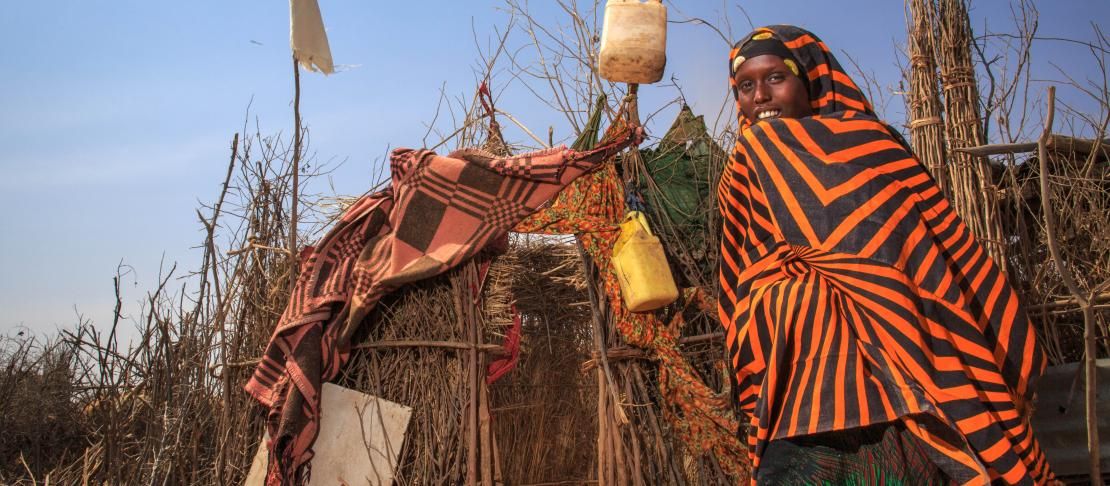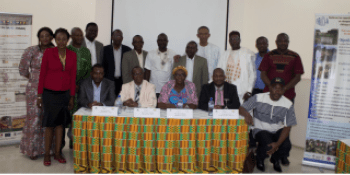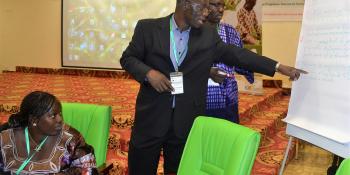Subjective factors vital to measure household climate resilience

Researcher highlights the need to include the people who are most affected by climate change in discussions on how to measure and build resilience to emergencies.
This is a summary of a recently published article on the Guardian Development blog.
As the development community's focus is shifting towards climate adaptation and resilience, so are financial resources and development priorities. It has now become almost a race among climate experts, scientists and development professionals to find the best, most accurate and effective ways to measure local communities' resilience to emergencies or extreme climate events. However, as this race rages on, a number of challenges and risks are being exposed. One such risk is forgetting to ask the right people - the ones actually affected by the events - what climate resilience means to them.
the race is on to find the best ways of measuring resilience.
This is according to Lindsey Jones, Fellow Researcher at the Overseas Development Institute (ODI) in a recently published blog on the Guardian Development site.
The development community is in its eagerness to win the resilience race missing to ask the people who are vulnerable and directly exposed to climate change which factors, or indicators, matter the most when faced with an extreme event.
Finding useful and key indicators to signal if a community or household is resilient or not, requires looking beyond the traditional indicators such as income, child nutrition, social networks and access to financial capital, and start looking at more subjective and even intangible factors.
“The approach is called subjective resilience, and it starts from the premise that most people have a good understanding of the factors that contribute to their own ability to cope with and adapt to emergencies," Jones writes.
And further: "People are asked to consider the factors contributing to their livelihoods and judge how resilient they consider their household to be to given threats. They are also asked to suggest ways to enhance their resilience.
Above all, subjective assessment has the potential to radically change the way that we track resilience and hold governments and civil society to account.”
Read the op-ed on the Guardian Development Blog: The best way to measure a household's resilience? Ask those who live there
The Dialing Up Project
The blog derives from a project which focuses on exploring questions of local and subjective perceptions of resilience and alternative measurements. This is part of an ongoing funding-seeking activity by a large consortium of partners of which the CGIAR Research Program on Climate Change, Agriculture and Food Security (CCAFS) is a member. Other consortium members include the Overseas Development Institute (ODI), the Kenya National Drought Management Authority (NDMA), the Kenya Red Cross Society (KRCS), GeoPoll, Aspiration and the Data-Pop Alliance.
The partnership received a seed grant from the Global Resilience Partnership (GRP), funded by the Rockefeller Foundation, USAID and the Swedish International Development Agency (SIDA) to design a proposal for a two-year project, studying these issues. The open-call project is named ‘Dialling Up resilience: Mobilising ICTs to enhance bottom-up resilience measurement, programming and governance in the Horn of Africa’.
The team has already held a consultative workshop with resilience experts and conducted field interviews in Kenya to talk about what contributes to a household’s ability to recover from stresses and shocks.
If the two-year project is funded, the team will continue to visit communities in arid and semi-arid areas of Kenya to discuss the local perceptions of resilience. The project would then use these findings to inform development of a subjective resilience survey and build a measurement tool that can add another dimension to the resilience debate.
Learn more:
Experts weigh in on ways to improve resilience measurements for the Horn of Africa
Measuring resilience: beyond income and assets to the intangible and subjective
Story put together by Cecilia Schubert, Communication Officer CCAFS Flagship on Policies and Institutions.



